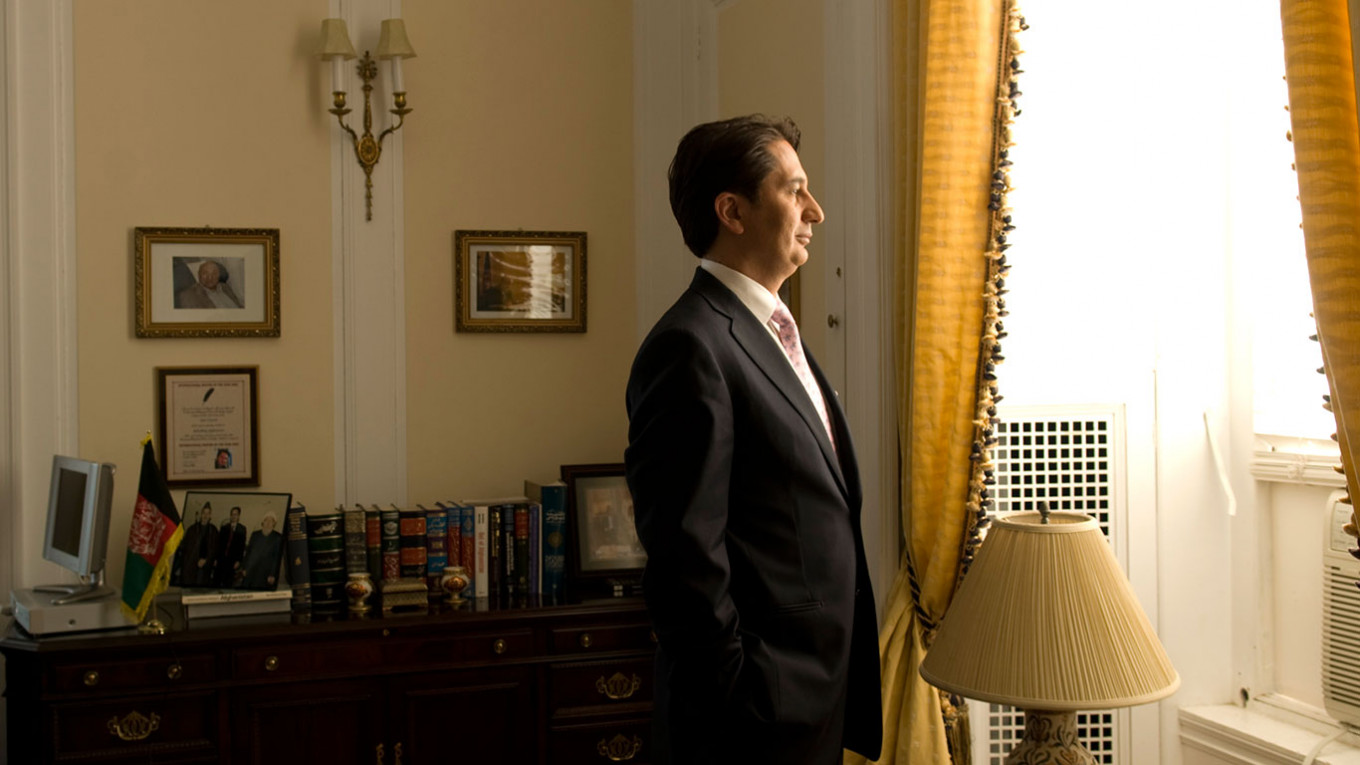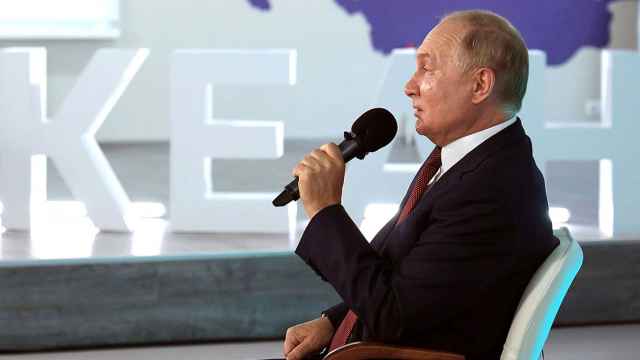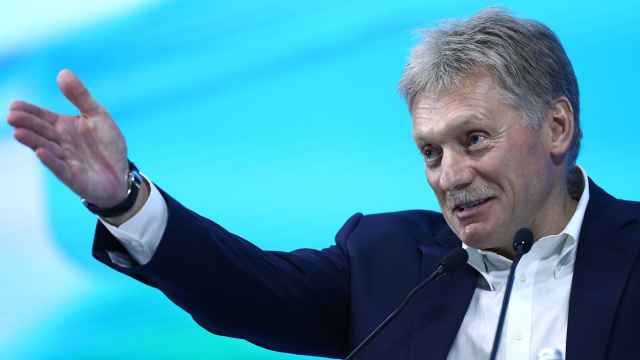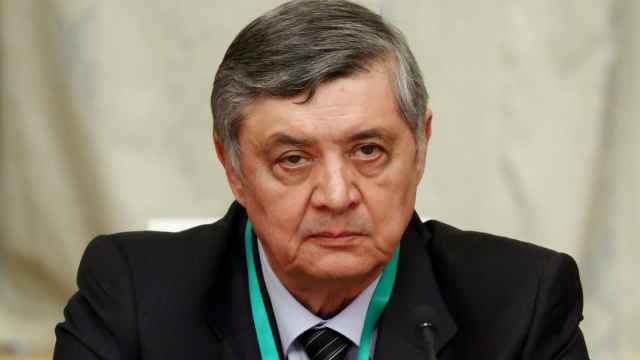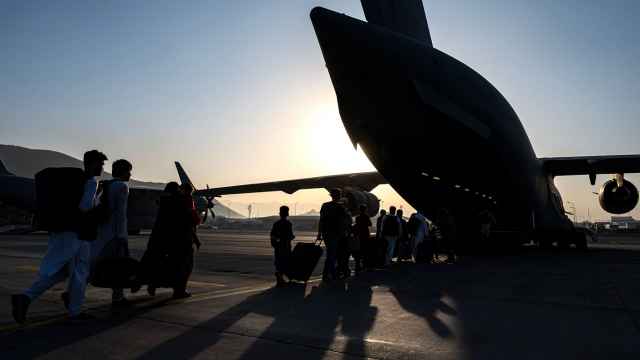On Aug. 14, Said Jawad, Afghanistan’s Ambassador in Moscow retweeted a video showing an Afghan woman pleading for help as the Taliban approached Kabul.
“No one cares about us. We’ll die slowly,” the woman says.
By the next day, the Islamist militia had taken over the country after a lightning offensive and were posting pictures from inside the presidential palace while President Ashraf Ghani was fleeing Afghanistan for the United Arab Emirates.
The sudden fall of Afghanistan has left diplomats across the world in a state of uncertainty and limbo as they are forced to face a completely new reality at home and may decide to seek asylum abroad.
Jawad is one of the country’s most senior diplomats, having previously been Ambassador to the United Kingdom and the United States.
He presents himself as a liberal politician and staunch critic of the Taliban — slamming the Islamist movement as “savage killers” — in his posts on social media and in op-eds published in leading Western publications.
Educated in Germany and the U.S., Jawad has also taught at a number of prestigious American universities, including Harvard University and John Hopkins. His wife, Shamim Jawad, is a prominent women rights advocate in Afghanistan.
“His views are pretty much the opposite of what kind of rule the Taliban envisions,” said a senior Western diplomat based in Moscow on condition of anonymity.
Taliban leader Waheedullah Hashimi on Wednesday said Afghanistan will not be a democracy under the new regime.
“We will not discuss what type of political system should we apply in Afghanistan because it is clear. It is Sharia law and that is it,” he said.
The Taliban has urged government employees in Afghanistan to return to work, though it hasn’t made any public statements on embassy staff abroad.
On Thursday, the Afghan Embassy in Moscow was closed. A Russian security guard guarding the Embassy told The Moscow Times that staff had left following the Taliban’s takeover.
“They all left on Monday because of what’s happening. Who knows when they’ll be back.” he said.
Jawad did not respond to requests for comment.
“Afghanistan’s diplomats are caught in limbo at the moment.” said Elizabeth Threlkeld, a former U.S. diplomat and deputy director at the Washington D.C.-based Stimson Center think tank.
Michael Kugelman, deputy Asia program director at the Wilson Center think tank said the Taliban has so far not focused on its diplomatic staff “simply because there’s so much else going on.”
“But eventually this will become a major question,” he added.
The situation is complicated, experts say, by the fact that a Taliban government in Afghanistan is unlikely to be recognized by many countries, which would mean their embassies would have to close.
“I do expect many Afghan ambassadors to seek asylum where they are now based or in other countries. The Taliban is unlikely to welcome senior representatives of the previous government back to Afghanistan.” Kugelman said
The senior Western diplomat told The Moscow Times that he believes Jawad will probably ask for asylum in a Western country.
“I can’t imagine him coming back to Kabul, not with the views he holds,” he said.
In neighbouring Tajikistan, Afghanistan’s ambassador to Dushanbe Zahir Aghbar has already split with the Taliban, and in an interview on Wednesday rejected their rule.
“I don’t think they can be trusted,” he told the Eurasianet news site.
Nigel Gould-Davies, the former British Ambassador to Belarus. said that what is happening in Afghanistan, while rare, is not unprecedented.
“Situations like this arise when a country's regime changes and the diplomats who have been representing the state oppose the new government,” he said, pointing to recent development in Myanmar.
In April, after a military junta seized power in Myanmar, former ambassador to the U.K., Kyaw Zwar Minn, was locked out of the London embassy after calling for the release of detained civilian leader Aung San Suu Kyi. Kyaw Zwar Minn has remained in Britain ever since. And in August of this year, two Myanmar citizens were arrested in New York in a plot to kill Myanmar’s Ambassador to the UN.
Jawad’s strong opposition to the Taliban comes as his counterparts in Russia have welcomed the movement, which is officially still labelled as a terrorist organization in Russia.
“The Taliban are starting to take control of the city — in the positive sense of the word,” Russia’s Ambassador to Afghanistan Dmitry Zhirnov told state television Sunday evening.
A Message from The Moscow Times:
Dear readers,
We are facing unprecedented challenges. Russia's Prosecutor General's Office has designated The Moscow Times as an "undesirable" organization, criminalizing our work and putting our staff at risk of prosecution. This follows our earlier unjust labeling as a "foreign agent."
These actions are direct attempts to silence independent journalism in Russia. The authorities claim our work "discredits the decisions of the Russian leadership." We see things differently: we strive to provide accurate, unbiased reporting on Russia.
We, the journalists of The Moscow Times, refuse to be silenced. But to continue our work, we need your help.
Your support, no matter how small, makes a world of difference. If you can, please support us monthly starting from just $2. It's quick to set up, and every contribution makes a significant impact.
By supporting The Moscow Times, you're defending open, independent journalism in the face of repression. Thank you for standing with us.
Remind me later.



